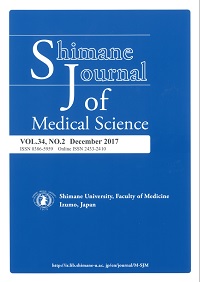Shimane University Faculty of Medicine
ISSN :0386-5959(in print)
ISSN :2433-2410(online)


These article are licensed under a Creative Commons Attribution-NonCommercial-NoDerivatives 4.0 International License.
number of downloads : ?
Use this link to cite this item : https://ir.lib.shimane-u.ac.jp/50690
Shimane Journal of Medical Science 37 2
2020-06 発行
Biologic Therapy Options for Crohn’s Disease
ISHIHARA, Shunji
Department of Internal Medicine II, Shimane University Faculty of Medicine
MISHIMA, Yoshiyuki
Department of Internal Medicine II, Shimane University Faculty of Medicine
KAWASHIMA, Kosaku
Department of Internal Medicine II, Shimane University Faculty of Medicine
File
Description
Crohn’s disease (CD) is an immune-mediated inflammatory intestinal disease of unknown etiology. In addition to conventional drugs such as 5-aminosalicylates (5-ASA), corticosteroids, and immune-modulating drugs, biologics targeting inflammation- and immunerelated molecules have been developed for treating CD. Initially, anti-tumor necrosis factor (TNF)-α antibodies were used for induction and maintenance therapies, and the clinical course of affected patients was dramatically changed because of their efficacy and safety. More recently, novel humanized biologics targeting the p40-subunit of interleukin (IL)-12/23 and α4β7-integrin have been developed, and shown to contribute to longterm therapy for CD. Although the efficacy of biologics for CD is widely recognized, how to determine which biologic is appropriate for individual patients remains largely unknown and additional studies are necessary to clarify this issue.
About This Article
DOI
DOI(SelfDOI)
Rights
Faculty of Medicine, Shimane University
Other Article
PP. 57 - 60
PP. 61 - 65
